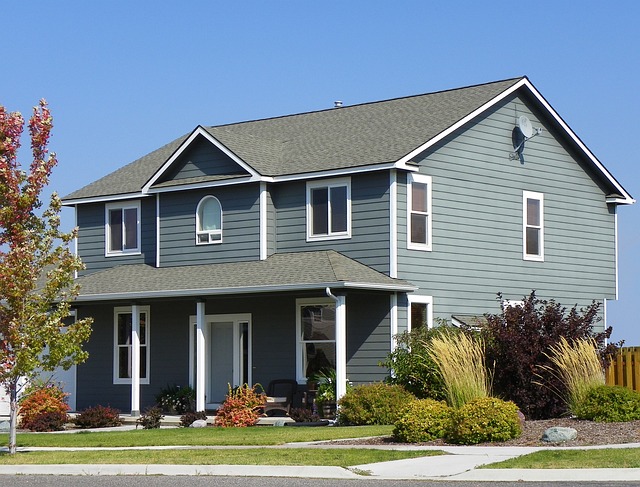Executive Condos (ECs) in Singapore offer a unique blend of luxury living and affordability within the public housing framework. These properties cater to families and professionals with spacious units and rich amenities, often at a more competitive price than private condominiums. To rent an EC, one must meet eligibility criteria set by Singapore's Public Housing Scheme, which includes being a Singaporean or permanent resident, adhering to income ceilings, and not owning another property. The market for EC rentals is influenced by various factors such as government policies, economic indicators like interest rates and loan cooling measures, and the lifecycle of the development projects. New EC developments can affect supply, while broader economic conditions and unit features like location, age, size, and amenities influence demand and pricing. It's important for renters and investors to stay informed about these influencers to navigate the market effectively. Additionally, foreign professionals married to a Singaporean or PR, or those with long-term visit passes and contributions to the CPF, may also rent ECs subject to specific conditions. Understanding the Minimum Occupation Period (MOP), lease terms, and legal requirements is crucial for a compliant rental experience within this regulated housing market.
Singapore’s property landscape offers a diverse array of living options, with the Executive Condominium (EC) segment playing a significant role in catering to the mid-tier market. This article delves into the dynamics of the EC rental market within the Lion City, providing a comprehensive overview for potential renters and investors alike. We’ll explore key factors influencing rental prices and demand, navigate through the legalities, and clarify eligibility criteria essential for renting an EC in Singapore. Join us as we unravel the intricacies of this unique segment of the housing market.
- Understanding the Executive Condominium (EC) Rental Market in Singapore: An Overview
- Factors Influencing EC Rental Prices and Demand in Singapore
- Navigating the Legalities and Eligibility Criteria for Renting an EC in Singapore
Understanding the Executive Condominium (EC) Rental Market in Singapore: An Overview

In Singapore, the Executive Condominium (EC) rental market represents a significant segment within the broader property market. These hybrid properties offer a unique blend of condominium living with the affordability of public housing, catering to the needs of both families and professionals. Prospective renters often consider ECs for their balanced combination of amenities and space, which can be more cost-effective than traditional private condominiums. The eligibility criteria for renting an EC are distinct from those for private properties, as they are subject to the Public Housing Scheme guidelines set forth by the Housing & Development Board (HDB). This makes the EC rental market a niche with its own set of dynamics and opportunities.
The rental landscape for ECs in Singapore is influenced by various factors, including government policies, market demand, and the maturity of the estates. For instance, as new EC projects reach completion and are released for rental, they can introduce fresh supply into the market. Additionally, changes in loan interest rates or property cooling measures can impact investors’ decisions and, consequently, the availability and pricing of EC units. Prospective tenants looking to navigate this market should be aware of these influences, as they play a pivotal role in shaping the rental experience. Investors and renters alike must keep abreast of trends and policy shifts that could affect their investment or living arrangements within this dynamic segment of Singapore’s property market.
Factors Influencing EC Rental Prices and Demand in Singapore

The rental market for Executive Condos (ECs) in Singapore is influenced by a myriad of factors that interplay to shape both prices and demand. These include geographical location, property age, unit type, amenities provided, and the broader economic climate. Situated within close proximity to key transportation hubs or near popular amenities like shopping centers, schools, and recreational facilities can significantly elevate an EC’s appeal, driving up rental prices due to its convenience and desirability. Additionally, the age of the EC plays a role; newer units often command higher rents due to their modern finishes and state-of-the-art facilities. The size and layout of the unit also impact demand, with larger, more versatile spaces attracting a wider range of potential tenants, from young professionals to growing families.
Economic factors such as interest rates, employment trends, and the overall economic health of Singapore also have a profound effect on the EC rental market. A robust economy typically leads to higher demand for housing, pushing rental prices upwards. Conversely, economic downturns may lead to a surplus of available units, putting downward pressure on rents. Furthermore, government policies and regulations, including those related to the eligibility criteria for purchasing ECs, can influence both supply and demand dynamics within the market, making them an important consideration for investors and renters alike. These factors, combined with the ever-changing demographic needs of Singapore’s population, create a complex and dynamic rental landscape for Executive Condos.
Navigating the Legalities and Eligibility Criteria for Renting an EC in Singapore

In Singapore, navigating the legalities and understanding the eligibility criteria for renting an Executive Condominium (EC) can be a straightforward process with the right information. Prospective renters must first comprehend that ECs are hybrid housing designed for Singapore citizens or permanent residents who can later sell their flats in the open market. Unlike public housing, after five years of occupation, eligible owners can switch their unit to private property status. For rental applicants, it is imperative to satisfy the following criteria: individuals must be at least 21 years old with a minimum monthly income of $15,000, and they cannot own another flat. Additionally, they must not have any outstanding housing loans or be blacklisted from buying or renting HDB flats. Foreigners are eligible to rent an EC only if they are married to a Singaporean or a permanent resident, holding a long-term visit pass, such as the Employment Pass or EntrePass, and have been residing in Singapore for at least three months. The CPF (Central Provident Fund) requirements also apply, where at least one applicant must contribute to the CPF. Prospective tenants should be well-versed in these stipulations before committing to an EC rental agreement, as failure to adhere to these regulations can lead to penalties or eviction.
When considering the legalities of renting an EC in Singapore, one must also be aware of the Minimum Occupation Period (MOP). For Singaporeans, the MOP is five years before they can sublet their EC. However, permanent residents must wait for a decade. Renters should verify these timelines to ensure compliance with the regulations set forth by the Singapore government. Additionally, understanding the different types of leases available, such as non-market and market leasehold terms, is crucial. The lease duration can range from 60 years to 99 years, depending on the land’s title. Prospective tenants should engage with a legal professional or real estate agent well-versed in EC regulations to navigate these complexities effectively. This due diligence will facilitate a smoother rental experience and ensure adherence to the stringent housing guidelines in Singapore.
Singapore’s Executive Condominium (EC) rental market presents a dynamic landscape for both residents and investors alike. This article has shed light on the various aspects of this niche sector, from comprehending its structure to navigating the legalities and eligibility criteria that govern renting an EC unit. Factors such as location, property size, and market sentiment play pivotal roles in shaping rental prices and demand within this segment. Prospective tenants and investors can benefit from a deeper understanding of these influences when considering an EC as a housing or investment option in Singapore. As the market continues to evolve, staying informed and adhering to the guidelines set forth by the authorities will remain crucial for successful engagement with the EC rental market.



